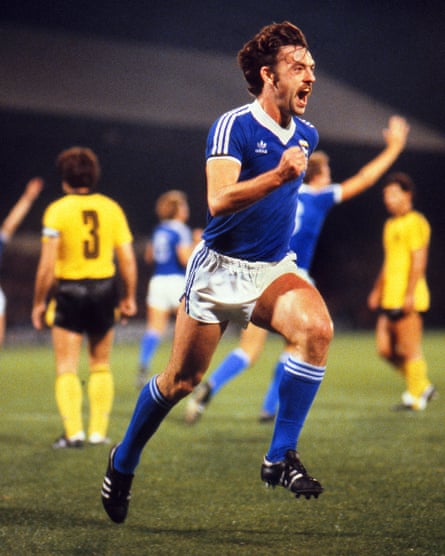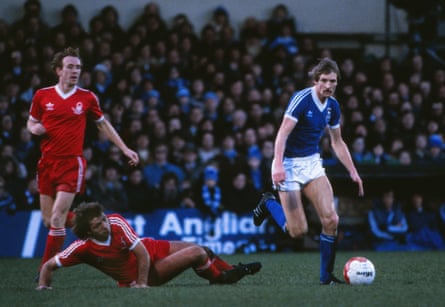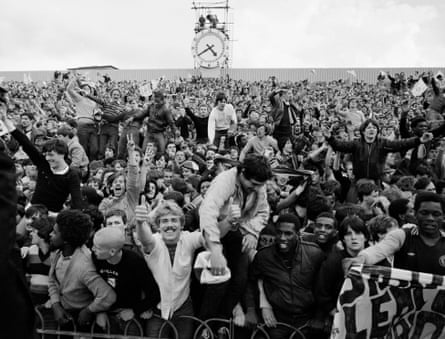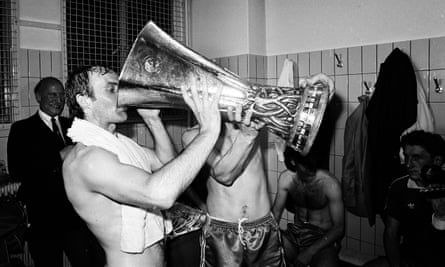zenduck.me: When Bobby Robson led Ipswich to Uefa Cup glory 40 years ago
Untung99 menawarkan beragam permainan yang menarik, termasuk slot online, poker, roulette, blackjack, dan taruhan olahraga langsung. Dengan koleksi permainan yang lengkap dan terus diperbarui, pemain memiliki banyak pilihan untuk menjaga kegembiraan mereka. Selain itu, Untung99 juga menyediakan bonus dan promosi menarik yang meningkatkan peluang kemenangan dan memberikan nilai tambah kepada pemain.
Berikut adalah artikel atau berita tentang Harian zenduck.me dengan judul zenduck.me: When Bobby Robson led Ipswich to Uefa Cup glory 40 years ago yang telah tayang di zenduck.me terimakasih telah menyimak. Bila ada masukan atau komplain mengenai artikel berikut silahkan hubungi email kami di [email protected], Terimakasih.
Towards the end of the 1980-81 season, it looked as if Ipswich Town were on course for a joyous treble. With 10 weeks of the season remaining, the club were top of the First Division and preparing for semi-finals of both the FA Cup and Uefa Cup.
Bobby Robson’s side had finished the previous season in style, losing just one of their last 24 league matches, and they started the 1980-81 campaign with a 14-game unbeaten run. The only problem for Ipswich was that, the more games they won, the more they had to play. Robson’s small squad struggled to cope with a season that would require them to play 66 games. “We had perhaps 14 championship-calibre players when we needed 19,” Robson later admitted in his autobiography Farewell but Not Goodbye.
By the time they started their attempt to win the FA Cup in January, Ipswich had already played 11 cup games that season: five in the League Cup and six in a Uefa Cup run that took them to Greece to play Aris Thessaloniki, Czechoslovakia to play Bohemians Prague and Poland to play Widzew Lodz before Christmas.
It was easy to see why Ipswich were thriving. Their Dutch midfielder Frans Thijssen was voted the football writers’ player of the year, with his countryman Arnold Muhren also earning praise for his displays. Alan Brazil and Paul Mariner, supported by Eric Gates playing in the hole, proved a handful up front. And goalkeeper Paul Cooper was protected by a solid defence of Mick Mills, Russell Osman, Terry Butcher and George Burley, with the versatile Steve McCall slotting into the team when Burley was ruled out from the end of January onwards.

But, among many gems, John Wark shone brightest. The Scottish midfielder scored 36 goals in all competitions, winning the PFA’s player of the year award and the young European player of the year. His exploits in the Uefa Cup were particularly memorable: four goals in the 5-1 hammering of Aris Thessaloniki; two in the 3-0 win over Bohemians Prague; and a hat-trick in the 5-0 triumph over a Widzew Lodz team that had beaten Manchester United and Juventus in the previous two rounds. There would be more goals for Wark in the later rounds too.
As autumn turned to winter, Ipswich went on another great run, losing just one of their next 17 league matches – a 5-3 defeat at Tottenham in which Gates was sent off when the scores were level at 3-3. Come mid-March, Ipswich had an impressive league record that read: P32 W20 D10 L2. Glory neared on three fronts.
Their FA Cup run started with a 1-0 win over title rivals Villa at Portman Road before victories over Shrewsbury and Charlton set up a clash with European Cup holders Nottingham Forest in the sixth round. In a dramatic tie, Ipswich took a 2-0 lead but needed a late equaliser from Thijssen to force a replay – another match to cram into the increasingly hectic schedule. Robson asked for the replay to be delayed by a day but Brian Clough refused to budge. The Ipswich manager had the last laugh, however, his team winning to set up a semi-final against Manchester City.

The fixtures just kept coming. From the start of March, Ipswich played 20 matches in three competitions, often squeezing in three matches a week. Wark scored in both legs against a St Etienne team containing stars Johnny Rep and Michel Platini, a stunning 4-1 away win followed up by a 3-1 victory at Portman Road, as the club reached the last four of the Uefa Cup. But their legs tired and an alarming slump in league form ultimately cost the team dear.
Their hopes of winning the FA Cup died in extra-time against Manchester City. To make a painful day even worse, Kevin Beattie also broke his arm in his last match for the club. It says a lot about the character of Robson’s team that they went to Villa Park three days later and reinvigorated their title chances by beating Villa for a third time that season. But a home defeat to Arsenal on 20 April and a crushing derby loss at Norwich two days later handed momentum back to Villa. Ipswich had games in hand, so the title was still within their reach, but their relentless schedule made them vulnerable.
The club reached their first European final by beating a Cologne team that had previously won 4-0 in Barcelona in the competition. The 1-0 home and away wins in the semi-finals over the German club were a fine achievement, but Robson was increasingly concerned about his players’ energy reserves. “The way things are organised here can down a team who are going for several big prizes,” he said. Advocating a move to an 18-team league, Robson also pointed out that teams on the continent were not punished so much. “The Germans are laughing at our programme,” he said before the second leg of the semi-final.
Being knocked out of the FA Cup so early and not having to play in Europe proved a blessing in disguise for Villa. After the FA Cup meeting between the two clubs in January, Villa played 17 league matches whereas Ipswich took to the pitch 31 times across three competitions.
Ipswich did well to maintain their title push until the final week of the season. On the final Saturday, with Aston Villa 2-0 down at Arsenal and Ipswich winning 1-0 at Middlesbrough, the half-time as-it-stands table would have seen Robson’s men two points behind with a game in hand. But it was not to be. Bozo Jankovic scored twice for Boro in the second half to end Ipswich’s challenge and hand Villa the title. Unsurprisingly, Ipswich also lost their last league game of the season, going down 3-2 to Southampton. It was their seventh defeat in their last 10 league matches.

Yet the team was not done yet. They still had a European trophy to win. The club had played in the Uefa Cup five times under Robson before the 1980-81 season, reaching the quarter-finals in 1973-74, but this was their first final. This was an era before the best clubs in Europe were gathered together in the Champions League. Anderlecht, Porto, Hamburg, Cologne, Juventus, Manchester United, PSV, Barcelona and holders Eintracht Frankfurt all entered the Uefa Cup that year and all fell short, as Ipswich and AZ Alkmaar made their way to the two-legged final.
Ipswich won the first leg 3-0 at Portman Road. Surely that should have been it – a trophy finally in the bag after an epic season – but the jaded Ipswich players put their manager and fans through more stress in the second leg. Thijssen’s early goal in Amsterdam gave Ipswich a 4-0 aggregate lead and calmed the nerves of the away side, but AZ scored twice to put Ipswich under pressure.
Wark restored Ipswich’s three-goal lead as he continued his incredible form in the competition. He scored in every round, equalling José Altafini’s 14-goal record, which he set when Milan won the European Cup in the 1962-63 season. But AZ would not lie down. They came back into the final again, scoring another two goals to make it 5-4 over the two legs.
After being 4-0 down earlier in the night, AZ needed two goals in the last 17 minutes to win the cup. But Ipswich would not be denied, holding on to win the final 5-4 on aggregate. “It was a glorious relief for the club, good enough to have won anything and everything this year, that at last they landed something,” wrote David Hunn in the Observer.

Five years later, the club dropped into the Second Division. Soon the days of 1980-81 would seem like a distant dream. But what memories Robson and his small squad provided.